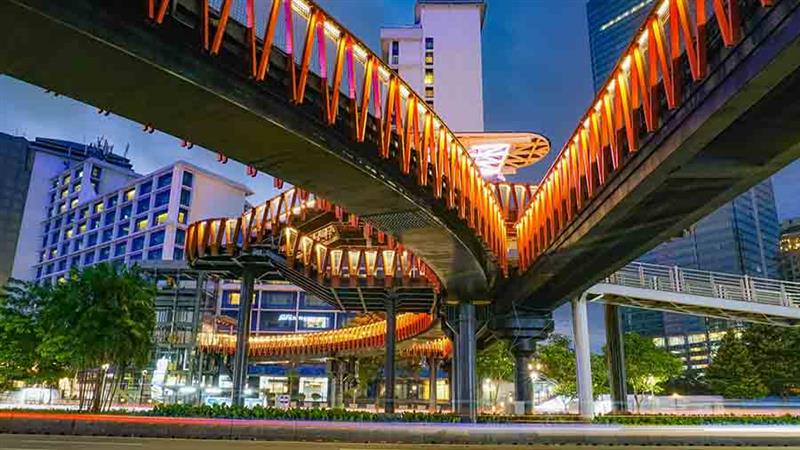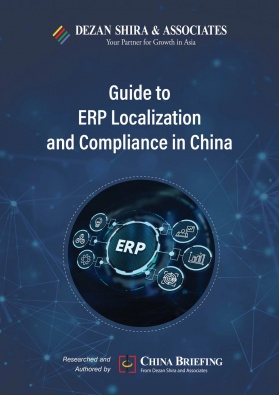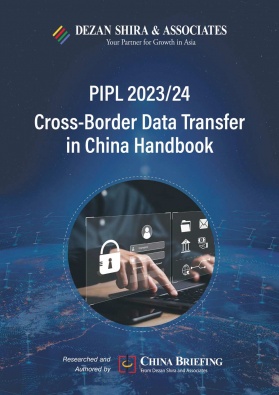China Introduces New Policy Measures to Facilitate the Movement of Residents
China has introduced a range of new policy measures for its residents to simplify entry and exit procedures, extend business stays, and address tourism needs, aligning with the vision of a more integrated Greater Bay Area.
China’s National Immigration Administration (NIA) has introduced a range of new policy measures designed to simplify entry and exit procedures for both Mainland residents and businesses. These measures encompass the streamlining of document processing and application procedures, extension of the duration of business stays, and addressing diverse tourism requirements.
The new policy measures represent a significant stride in China’s dedication to fostering high-level openness and facilitating international exchanges. Additionally, they are in line with existing policies aimed at enhancing integration within the Guangdong-Hong Kong-Macao Greater Bay Area (GBA). By promoting enhanced business, cultural, and technological exchanges among the Chinese Mainland, Hong Kong, and Macao Special Administrative Regions (SARs), these measures contribute to deeper regional integration and cooperation.
As these connections strengthen, the potential for deeper and broader interactions between these regions is anticipated to increase, presenting new avenues for business opportunities. Hong Kong’s pivotal role as a “super connector” between the Mainland and the global market, along with Macao’s unique position, further underscores the potential for expanded cooperation and growth.
In this article, we provide an overview of the new policy measures and delve into their significance.
Key policy measures
Online application for entry and exit documents
This initiative introduces a convenient online application process for residents in 20 cities to renew or replace their travel documents, including passports and permits for travel to and from Hong Kong, Macao, and Taiwan. Specifically, the pilot program will be introduced in the following cities:
- Beijing
- Tianjin
- Shenyang
- Harbin
- Shanghai
- Nanjing
- Hangzhou
- Ningbo
- Hefei
- Xiamen
- Jinan
- Qingdao
- Zhengzhou
- Guangzhou
- Shenzhen
- Zhuhai
- Chongqing
- Chengdu
- Kunming
- Xi’an
Eligible applicants, excluding certain government and military personnel, can now conveniently submit their applications entirely online through the National Immigration Administration’s platform. This online submission process eliminates the need for physical visits to local exit-entry administration offices, significantly streamlining the application process and reducing the time required for document issuance.
Once submitted, applications that meet all requirements are processed within 7 working days by the local authorities, ensuring a swift and efficient turnaround time for applicants.
Smart and nationwide processing for Hong Kong and Macao business visas
Mainland residents seeking business visas for Hong Kong and Macao now enjoy the advantages of a streamlined nationwide application process. They have the flexibility to apply at any public security exit-entry administration office throughout the country. Moreover, for those requiring multiple-entry business visas, the introduction of a smart visa processing system facilitates rapid and efficient issuance. This system enables applicants to receive their visas promptly, often on the spot, further enhancing the convenience and efficiency of the application process.
Expansion of Talent Visas to Hong Kong and Macao
Residents of Beijing and Shanghai who belong to six designated categories of talents, now have the opportunity to apply for multiple entry visas to Hong Kong and Macao. The six talents categories include:
- Outstanding talents;
- Scientific researchers;
- Educators;
- Healthcare professionals;
- Legal experts; and
- Management talents.
These visas vary in validity from 1 to 5 years and permit stays of up to 30 days per visit.
To qualify for these extended visas, applicants must furnish relevant talent certificates as part of the application process. This expansion of eligibility aims to facilitate greater mobility and collaboration for talented individuals across borders.
Extension of stay for business visa holders
The duration of stay for Mainland residents holding business visas for Hong Kong and Macao has been extended from 7 to 14 days per visit. This extension offers increased flexibility for business travelers, affording them more time to engage in activities and pursue business-related endeavors during their stays.
By doubling the allowable stay duration, this adjustment accommodates the diverse needs of business professionals and fosters more productive and comprehensive engagements in Hong Kong and Macao.
Issuance of 1-Year multiple “Other” category visas for Macao
Mainland residents traveling to Macao for a range of purposes now have the option to apply for 1-year multiple-entry visas under the “other” category. These include:
- Attending exhibitions;
- Seeking medical treatment; and
- Participating in performances.
Additionally, medical patients are granted the opportunity to apply for visas for up to two accompanying persons, further enhancing accessibility and support for those seeking medical care in Macao.
Multiple entries for “QinAo” tourist groups
Mainland residents joining “QinAo” tourist groups (in Chinese, “琴澳旅游团”) can now enjoy the convenience of multiple entries between Hengqin and Macao within a specified timeframe. By obtaining group tourist visas marked with “QinAo Tourist,” participants can make multiple round trips between these destinations within 7 days after their initial entry into Macao. This initiative aims to promote tourism and enhance the travel experience for mainland visitors to the region.
These measures collectively aim to simplify entry and exit procedures, foster closer ties between mainland China, Hong Kong, and Macao, and facilitate various forms of exchange and cooperation across different sectors.
Can foreigners in China benefit from the new policy measures?
Yes, foreigners can also benefit from some of these measures, particularly those related to streamlined entry and exit procedures and enhancements in the business environment. For example, if foreigners are residing in China and need to renew or replace their travel documents, they may also be able to take advantage of online application processes, depending on the specific policies and regulations applicable to their situation. Additionally, measures aimed at promoting business travel and talent mobility, such as extended stay duration and multi-entry endorsements for designated talent categories, could indirectly benefit foreigners who are working or conducting business in Mainland China, Hong Kong, or Macao.
These measures contribute to creating a more conducive environment for international professionals and entrepreneurs, facilitating cross-border exchanges and collaboration.
While the specific eligibility criteria and application procedures may vary for foreigners compared to mainland residents, the overarching goal of these measures to enhance convenience, stimulate economic activity, and promote international exchange remains relevant for individuals from diverse backgrounds and nationalities.
Strengthening connectivity across the GBA
As the GBA commemorated its 5th anniversary in February 2024, the region witnessed significant milestones in collaboration and integration. While the GBA plan has laid the groundwork for fruitful partnerships within the area, recent developments are poised to capitalize on this momentum, driving increased demand across various sectors, such as tourism, retail, hotels, and dining.
The new arrangements, particularly those aimed at simplifying travel for business professionals and talent from the mainland, are expected to unlock fresh opportunities in Hong Kong and Macao. This influx of skilled workers from the Chinese Mainland is anticipated to inject vitality into innovation and development efforts in both Hong Kong and Macao, further enriching the local talent pool and fostering cross-regional knowledge exchange.
Moreover, measures designed to encourage people-to-people exchange are seen as a boon to the tourism market, with Hong Kong local businesses eagerly anticipating the influx of visitors long national holidays. The distribution of consumption coupons to tourists from Mainland cities marks a significant step in the tourism authority’s efforts to attract mainland travelers, highlighting the region’s commitment to fostering closer ties with its mainland counterparts.
As the GBA continues to evolve and expand its reach, the future holds promise for strengthened ties and sustained economic development across the region. Through continued collaboration and innovation, the region continues to emerge as a dynamic and vibrant economic powerhouse in the years to come.
Key takeaways
The implementation of these new policy measures holds profound significance across multiple dimensions, impacting both individual travelers and broader socioeconomic dynamics. By simplifying application channels and procedures for exit and entry documents, the policies directly contribute to enhancing the well-being of residents. The ability to renew passports and travel documents online, particularly for residents in pilot cities like Beijing and Shanghai, signifies a substantial leap towards convenience and accessibility in travel arrangements.
Furthermore, these policies stimulate economic activity by streamlining business travel procedures and extending stay duration in Hong Kong and Macao. This facilitates commercial interactions between mainland China and these regions, benefiting entrepreneurs and professionals engaged in cross-border activities.
Ultimately, the new measures align with China’s vision of a more open global economy, promoting exchanges in various sectors and contributing to a vibrant economic ecosystem on regional and international levels.
About Us
China Briefing is one of five regional Asia Briefing publications, supported by Dezan Shira & Associates. For a complimentary subscription to China Briefing’s content products, please click here.
Dezan Shira & Associates assists foreign investors into China and has done so since 1992 through offices in Beijing, Tianjin, Dalian, Qingdao, Shanghai, Hangzhou, Ningbo, Suzhou, Guangzhou, Haikou, Zhongshan, Shenzhen, and Hong Kong. We also have offices in Vietnam, Indonesia, Singapore, United States, Germany, Italy, India, and Dubai (UAE) and partner firms assisting foreign investors in The Philippines, Malaysia, Thailand, Bangladesh, and Australia. For assistance in China, please contact the firm at china@dezshira.com or visit our website at www.dezshira.com.
- Previous Article China Monthly Tax Brief: April 2024
- Next Article China-United Arab Emirates (UAE): Bilateral Trade and Investment Outlook

























